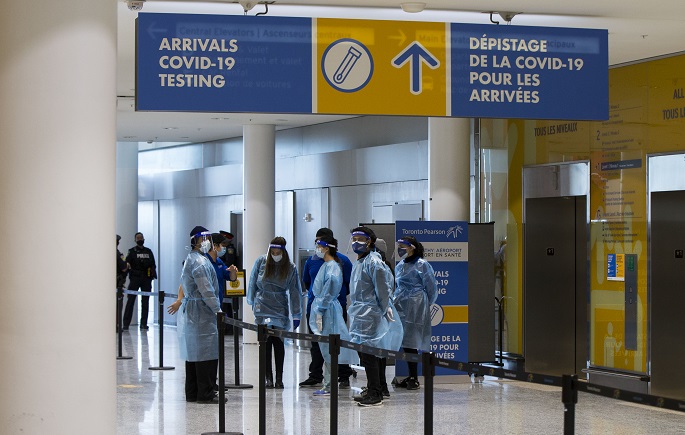Canada sees mental health of medical workers worsening amid COVID-19
Published : 03 Feb 2021, 02:01
Seventy percent of health care workers in Canada who participated in a recent crowdsourcing initiative reported worsening mental health during the COVID-19 pandemic, reported Xinhua, quoting Statistics Canada on Tuesday.
Participating health care workers who worked in direct contact with confirmed or suspected cases of COVID-19 and those who experienced restrictions or conditions on the supply of personal protective equipment (PPE) were more affected than others.
A previous study from Statistics Canada has shown that Canadian adults aged 18 and older reported lower self-perceived mental health than before the pandemic.
Some 18,000 health care workers filled out the crowdsourcing questionnaire, which was open for completion from Nov. 24 to Dec. 13, 2020.
Health care workers include workers who provide health care services directly to individuals, technical support to medical staff, and support services within a health care setting.
Eight months into the global pandemic, 33 percent of participating health care workers reported fair or poor mental health, 33 percent reported good mental health, and 33 percent reported very good or excellent mental health. Some 70 percent of health care workers reported that their mental health was "somewhat worse now" or "much worse now" compared with before March 2020.
Among participants, 40 percent reported working in direct contact with confirmed or suspected cases of COVID-19. Of these workers, 41 percent were nurses, 31 percent were other health professionals and 12 percent were personal support workers or care aides.
Over 77 percent of health care workers who reported working in direct contact with confirmed or suspected cases of COVID-19 reported worsening mental health compared with before the COVID-19 pandemic.
By contrast, among health care workers who did not work in direct contact with people, 62 percent reported that their mental health was somewhat or much worse than before the pandemic.
In addition, 63 percent of those working in direct contact with confirmed or suspected cases of COVID-19 reported that their days were quite a bit or extremely stressful, compared with 44 percent of participants who did not work in direct contact with people.
Appropriate PPE-such as masks, face shields and N95 respirators-is essential for reducing infection risk. For the month before they participated in the crowdsourcing initiative, 47 percent of health care workers reported that they did not have any restrictions or conditions on the supply of PPE.
However, 31 percent of participants reported that they extended the use of PPE beyond normal practice, 18 percent were required to reuse PPE they had previously worn without decontamination, and 11 percent needed to supply their own PPE.
Almost 30 percent reported that their access to PPE was subject to some restrictions, such as requiring permission to access PPE.
These reported PPE access restrictions could be attributable to a combination of inventory control measures put in place by health care settings and ongoing shortages in the supply of PPE.
Health care workers citing no restrictions or conditions on the supply of PPE reported better mental health and stress outcomes than participants who experienced restrictions or conditions.


